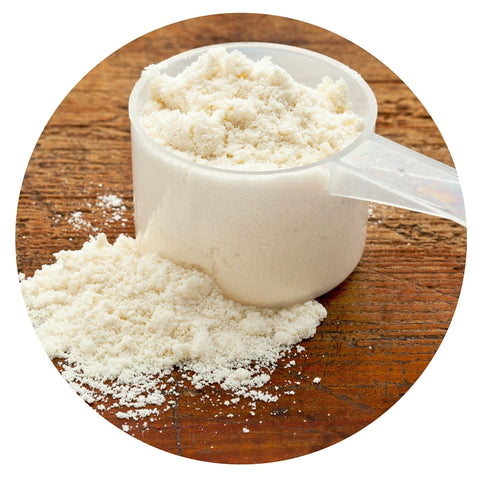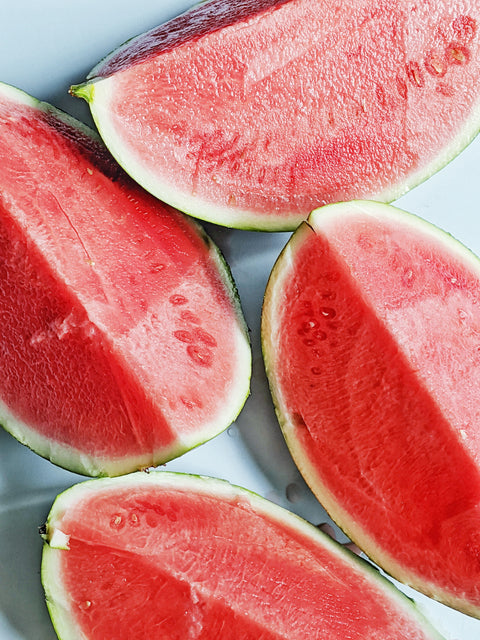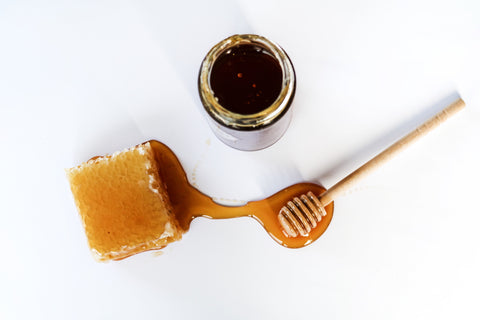You’ve seen the aisles at the grocery store: whey, whey, and more whey. Overwhelming, we know. But what the heck is whey and why does it matter?
Well, we’re here to break down the purpose of whey protein and why it has become a popular addition in smoothies and shakes nationwide.

What’s up With Whey? 3 Types of Whey Protein
Whey protein is a popular choice for boosting muscle growth, aiding in weight loss, and promoting overall health. There’s a plethora of whey protein products out there, but they boil down to three different types. Let’s check out the advantages of whey protein concentrate, whey protein isolate, and whey protein hydrolysate.
Whey Protein Concentrate
Whey protein concentrate is the most common type of whey protein that the average consumer starts with. It contains a decent amount of protein (around 80%), along with some carbs and fats.
While it may not be the highest in protein content, it still packs a punch with a good amino acid profile. If you're looking to up your protein game without breaking the bank, this one's for you.
Whey Protein Isolate
Whey protein isolate is a go-to choice for those who want to watch their calories or cut down on carbs and fats. It undergoes a more refined process to remove most of the fat and lactose, leaving you with a powder that's 85-90% pure protein.
If you're all about that lean and mean protein source, look no further than whey protein isolate.
Whey Protein Hydrolysate
In a rush? Whey protein hydrolysate is your hero. This type of whey protein undergoes extra processing, breaking it down into smaller protein fragments—called peptides. The result? It gets absorbed by your body super fast, making it a superior choice for post-workout recovery.
The Benefits of Whey Protein Powder
Accelerating Muscle Growth
Your muscles rely on protein, especially if you’re trying to increase muscle mass. Pump up those muscles with the help of whey protein's essential amino acids—aka, the fundamentals of protein.
Aiding Weight Loss
Need some help losing those extra pounds? Whey protein helps you feel fuller longer, effectively reducing overeating and keeping those cravings at bay.
Lowering Cholesterol
According to recent studies, whey protein may lower your cholesterol levels. It’s thought to boost the good cholesterol (HDL) while reducing the bad cholesterol (LDL).
Reducing Cardiovascular Disease
Whey protein's bioactive peptides, like lactokinesis, have potential cardiovascular benefits. They can help reduce blood pressure and improve your heart’s health.
Let’s Talk Dosages
For Weight Loss
If your mission is to shed pounds, aim for 0.4-0.6 grams of protein per pound of your body weight.
For Muscle Building
If you're hitting the gym three times a week, aim for 20-25 grams post-workout. Take between 24-48 grams if you’re at the gym four or more times a week.
How to Choose the Right Whey Protein
There’s a right way and a wrong way to choose whey protein. Whether it's for muscle growth, weight loss, or overall wellness, it’s important to figure out your goals. Avoid whey protein with excess sugars and other unhealthy additives, and look for products that have been third-party tested and certified.
Don’t Know What Whey to Choose? Try Rise Bar.
Going the Rise Bar route has never been tastier. Our vegan whey protein bars are made with three to five ingredients and contain 15-20 grams of protein in every bar.
Get your whey protein at home, at the gym, or on the go with Rise Bar. Check out our Almond Honey Bar, Snicker Doodle Bar, and Chocolatey Almond Bar for a nutritious burst of flavor in every bite.




